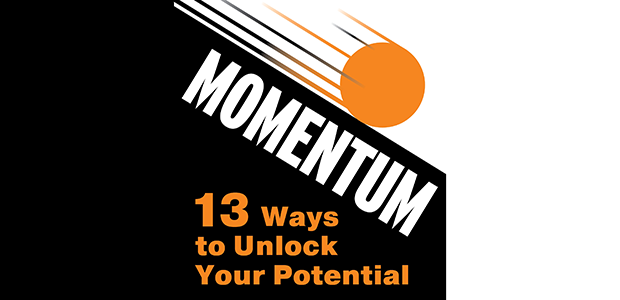
How to avoid burnout as a leader or entrepreneur
What’s important to you, I was asked back in early 2014 as PhenomGames transitioned from a scrappy startup to an operation scaling across Europe. Our EBITDA, annual recurring revenue, client relationships, and new software product were all at the forefront of my mind.
Asked the same question by the end of 2014, and you would have received a single answer; being able to walk again. I didn’t see my health as important until it failed, and in today’s fast-paced, high-pressure world, the challenges for entrepreneurs and leaders are more intense than ever. It’s for this reason I wrote my book, Momentum, and why I’m writing about burnout here.
I’ve studied the psychology of resilience and performance alongside building businesses. Burnout isn’t a sudden collapse, despite it sometimes appearing that way. It’s a slow and subtle erosion of purpose, energy, and joy, that creeps up on you like a tax you delay paying. Something I’m passionate about is achieving sustainable success, and this requires reflection, being intentional and having boundaries in a flexible but clearly defined way. Here are some of the strategies that I’ve uncovered that have allowed me to harness my work ethic without losing myself on the journey.
Redefining success: progress over perfection
We often fall into the trap of chasing perfection, which can lead to a feeling of things or ourselves never being enough. Instead, focus on progress. Get the minimum viable product or service out there. Hone your incremental improvements and celebrate the small wins, focusing as much on the process and journey as the outcomes. There is value in this effort, learning and momentum built, because burnout thrives when all our focus is on the outcomes
Forget time management. Welcome energy and attention management
Business books love to talk about time management, but energy and attention management is where sustainable entrepreneurship lies. Monitor how your energy flows, and do the intensive tasks during your peak. Guard your attention and reserve that time for your deep work and high value tasks. And be just as intentional in setting non-negotiable times for activities that energise you and recharge your batteries. Don’t forget that growth occurs during rest.
Create non-negotiable boundaries
People are becoming resistant to hustle culture, but nothing achieves momentum without effort and a lot of pushing. The problem isn’t hustle culture, it’s having no boundaries or separation. Set clear limits for yourself, and your body and mind will thank you. Maybe you go all in digital sunset with devices, have “off hours” where you don’t communicate or dedicate weekends or mornings to family or hobbies, and carve these out like a meeting with your largest stakeholder. Remember that saying no is good for your health, and that boundaries are not restrictions; they are space for recovery.
Delegation is medicine
Fear of losing control or perfectionism can stop us from delegating our outsourcing, even when the impact is inefficiency and exhaustion. It’s a brutal lesson I found out, when I realised how much I was getting in the way. Empowering others to do what they do well while focusing on what you do well is both energising and liberating, especially after the initial startup moment where everyone is doing everything. Identify whats draining you and doesn’t need your skills, and delegate and outsource away.
Purpose: get aligned
Burnout is often rooted in losing sight of why you started in the first place. I can be honest and say I got pulled away from my values in the push for growth. Step back and reflect on your mission. What impact do you want to create, and is your business aligned with your values? Just taking a pause to answer these questions allows you to reconnect, and this creates less friction as you continue to progress.
Practice micro-recovery
Founder life isn’t glamourous. While retreats might seem lovely, time is precious and the work can feel endless. Building in micro-moments of recovery is essential, and they compound in a positive way. Five minutes of mindfulness between meetings, getting out into sunlight for lunch or using transition rituals like stretching or journalling between work tasks, these moments keep topping up our recovery and energy, ready for the next push.
Build a support network
Burnout loves isolation, and other people often see it creeping up on you before you see it yourself. Mentors, peers, coaches, friends, there is power in sharing experiences, seeking perspective and being connected. Resilience is a team sport, and spaces to be vulnerable are vital as leaders.
Rest is a leadership skill
Rest isn’t a luxury, it’s a strategic advantage. We make better decisions, communicate more effectively and role model leadership when we treat downtime like deadlines. Prioritise sleep, digital disconnection and taking holidays, and burnout will have a hard time finding you.
Burnout doesn’t just impact the individual; it has a knock-on impact on everything connected to them. Trust me, I had to learn that the hard way. It’s no surprise that I wrote Momentum based on the lessons I learned from things that went wrong. My version of success today is simple. To be happy to go to work, and to be happy to come home. Redefined success has protected me from burnout. Maybe it’s time to go and define what success really means to you.

